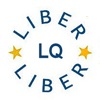Preparing for New and Changing Roles in Research Libraries – the Need for Continuing Professional Development
DOI:
https://doi.org/10.18352/lq.7863Abstract
It is expected that library staff are qualified to offer high quality services to users visiting the physical library. Likewise, it is expected that they have substantial knowledge and skills needed for developing and maintaining electronic services and for dissemination of relevant services and facilities requested by the web-user. Serving remote library users calls for additional competencies, such as marketing, branding and communications skills in the electronic environment as well as knowledge of measuring and evaluation of the use of electronic services. It is a challenge to the staff to match particular needs and demands from different user groups, but also to library management staff to ensure that the competencies and skills are available in the organisation to match the needs of the user – wherever s/he might be located. Competencies are, in this context, defined as the combination of knowledge and experience that make the individual able to take the right actions in the daily working environment.What education and training needs emerge from the changing roles and new tasks? How might we identify the needs for continuing professional development? And how can we maintain and update skills and competencies acquired maybe 25 years ago? These are key questions – not only to be addressed to library managers, but also to be considered carefully by those institutions responsible for continuing education and professional development of library staff.
Downloads
Download data is not yet available.

Published
2006-10-25
Issue
Section
Articles
License
Copyright (c) 2006 Gitte Larsen

This work is licensed under a Creative Commons Attribution 4.0 International License.
How to Cite
Larsen, G. (2006). Preparing for New and Changing Roles in Research Libraries – the Need for Continuing Professional Development. LIBER Quarterly: The Journal of the Association of European Research Libraries, 16(3-4). https://doi.org/10.18352/lq.7863





